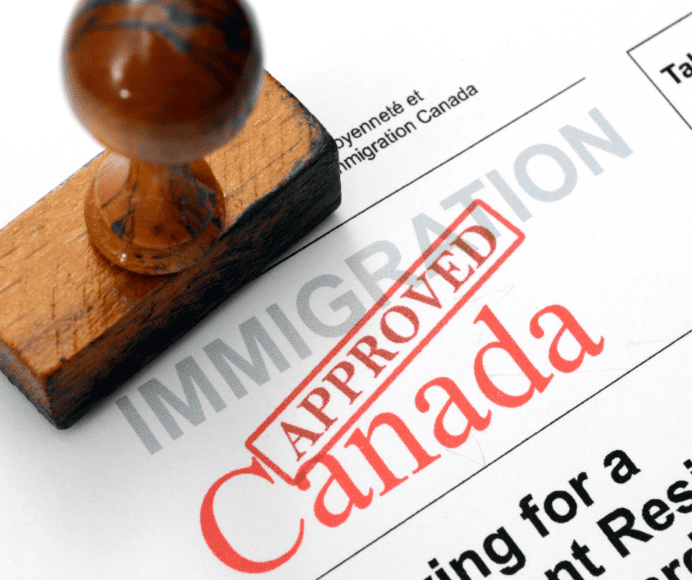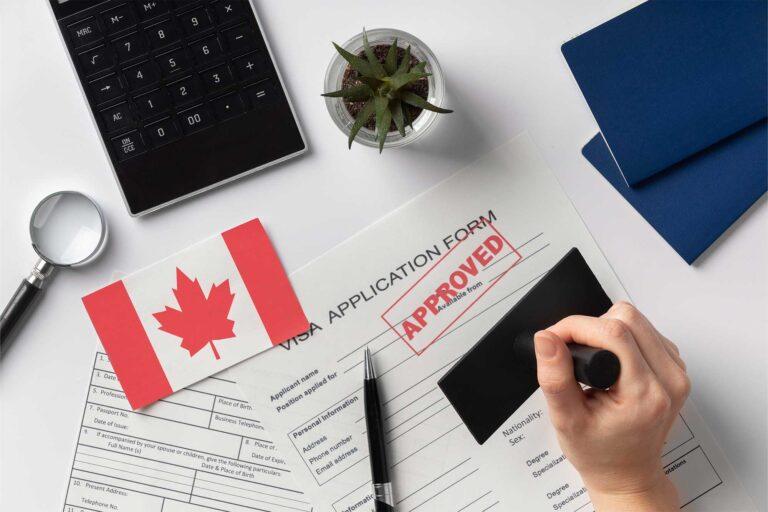Got a Procedural Fairness Letter from Immigration, Refugees and Citizenship Canada (IRCC)? Here’s What You Must Do Next
Receiving a letter from Immigration, Refugees and Citizenship Canada (IRCC) can be stressful. But when that letter says “Procedural Fairness,” the stakes suddenly feel ten times higher.
First things first: Don’t panic. But don’t wait, either.
A Procedural Fairness Letter (PFL) is a sign that your Canadian immigration application is on the brink of refusal, but it’s also your last opportunity to respond and explain yourself before a final decision is made.
This is your moment to act, calmly, quickly, and strategically.
What Is a Procedural Fairness Letter?
A Procedural Fairness Letter is a formal notice from Immigration, Refugees and Citizenship Canada (IRCC) that indicates a serious concern with your application. Think of it as a warning shot: Immigration, Refugees and Citizenship Canada (IRCC) is planning to refuse your application, but they’re giving you a chance to respond before they do.
In legal terms, it’s part of Immigration, Refugees and Citizenship Canada (IRCC)’s obligation to provide you with an opportunity to address concerns that could affect the outcome of your case.
These letters typically sound firm, even intimidating, and they should be taken seriously. But if handled correctly, you can still salvage your application.

Why Did I Get a Procedural Fairness Letter?
There are several reasons why Immigration, Refugees and Citizenship Canada (IRCC) may issue a Procedural Fairness Letter. Here are the most common:
1. Misrepresentation
This is one of the most serious grounds for refusal. Misrepresentation includes providing false documents, inaccurate information, or withholding key facts, even if it was unintentional. This can lead to a five-year ban from applying to Canada again.
Examples include:
- Failing to disclose previous visa refusals
- Incorrect employment records or reference letters
- Fake documents (even unknowingly submitted)
2. Medical Inadmissibility
If your medical exam results suggest that you or a dependent may pose a public health or safety risk, or may cause excessive demand on health or social services, Immigration, Refugees and Citizenship Canada (IRCC) may raise concerns under medical inadmissibility grounds.
3. Security or Criminal Concerns
If there’s evidence linking you to criminal activity, national security risks, or organized crime, a Procedural Fairness Letter will be sent before any refusal.
4. Inconsistencies or Contradictions in Your File
This could include discrepancies between your application forms, your interviews, or your supporting documents. For example:
- Contradictions in work history or education
- Different versions of your marital status or family relationships
- Inconsistencies in your travel history
Whatever the cause, the Procedural Fairness Letter means Immigration, Refugees and Citizenship Canada (IRCC) has doubts, and you need to clear them up fast.
What Should You Do After Receiving a Procedural Fairness Letter?
Time is not on your side. You typically have 7 to 30 days to respond, depending on the nature of the concern and your location.
Here’s what you need to do, right now:
1. Understand the Allegation Fully
Read the letter thoroughly. Immigration, Refugees and Citizenship Canada (IRCC) must clearly state what they believe is wrong with your application. The issue could be buried in legal jargon, so it helps to have an experienced immigration lawyer review the letter and interpret it properly.
2. Respond with Facts, Not Emotion
This is not the time for vague explanations or apologies. Immigration, Refugees and Citizenship Canada (IRCC) is looking for clear, evidence-based answers. Your response must be logical, consistent, and legally grounded.
A strong reply often includes:
- A statutory declaration or affidavit explaining your side of the story
- Supporting documents that back your explanation (e.g., corrected records, police clearances, medical assessments)
- A legal submission addressing the specific immigration regulation you’re being challenged under
3. Avoid Guesswork or Excuses
Many applicants make the mistake of submitting rushed or incomplete responses, hoping Immigration, Refugees and Citizenship Canada (IRCC) will understand their intent. Immigration officers aren’t there to assume the best; they evaluate what’s in front of them. If your reply doesn’t directly and convincingly address the concern, refusal is almost guaranteed.
4. Meet the Deadline, No Exceptions
Procedural Fairness Letter response deadlines are hard. If you miss it, your application is usually refused by default. There are very limited circumstances under which extensions may be granted, and even then, they must be formally requested immediately with a valid reason.
Why Your Response Can Make or Break Your Immigration Future
A Procedural Fairness Letter is not just about your current application; it can affect your future in Canada for years to come.
For example:
- A finding of misrepresentation can lead to a 5-year bar from applying again
- A refusal based on health or criminal grounds can carry long-term inadmissibility.
- Multiple inconsistencies in your file can make future applications more difficult to approve, even if you qualify.y
This is not a DIY moment. Responding to a Procedural Fairness Letter requires legal precision, strong documentation, and a strategic understanding of how immigration officers assess risk.

Let Akrami & Associates Help You Respond the Right Way
At Akrami & Associates, we’ve helped countless clients successfully overcome procedural fairness letters. We know how stressful this moment is, but we also know how to turn things around.
Here’s how we help:
- We review your full application and identify the weak points that Immigration, Refugees and Citizenship Canada (IRCC) is focusing on
- We draft a strong legal submission with supporting documentation tailored to your case.
- We ensure your response is clear, professional, and fully compliant with immigration law.w
- We monitor your deadline and ensure every step is taken before time runs out.
You don’t get a second chance to reply. Let our experience make the difference between refusal and approval.
Related Immigration Services
If you’re dealing with a procedural fairness letter or want to avoid one, here are some services we offer to strengthen your application:
- Misrepresentation Defence – For applicants accused of submitting false or incomplete information
- Medical Inadmissibility Appeals – Helping clients challenge Immigration, Refugees and Citizenship Canada (IRCC)’s findings with updated assessments and expert opinions
- Application Reviews & Second Opinions – Before submitting, we check your file for inconsistencies that might trigger a Procedural Fairness Letter
- Appeals & Reconsiderations – If your application was refused unfairly, we can help challenge the decision
Frequently Asked Questions (FAQs)
- How serious is a procedural fairness letter from Immigration, Refugees and Citizenship Canada (IRCC)?
Very. A Procedural Fairness Letter indicates Immigration, Refugees and Citizenship Canada (IRCC) is preparing to refuse your application. If not handled properly, it can lead to rejection and long-term consequences, like inadmissibility or bans. - Can I respond to a Procedural Fairness Letter by myself?
You can, but it’s risky. Procedural fairness responses require legal reasoning, strong documentation, and deep knowledge of immigration law. Working with a legal professional significantly improves your chances. - How long do I have to respond to a Procedural Fairness Letter?
Usually between 7 to 30 days, depending on the nature of the issue and your location. The deadline is stated in the letter, and missing it can mean automatic refusal. - What happens if I ignore the Procedural Fairness Letter or miss the deadline?
Immigration, Refugees and Citizenship Canada (IRCC) will proceed with a refusal, often without further notice. This could result in bans, inadmissibility, or severe delays in future applications. - What kind of documents should I include in my response?
That depends on the concern. Common documents include statutory declarations, updated police certificates, medical letters, employment verifications, or corrected application materials.
Don’t Leave Your Future to Chance
A Procedural Fairness Letter can feel like the end, but it doesn’t have to be. With the right help, it can be a turning point. At Akrami & Associates, we know how to respond fast, smart, and strategically, giving your case the fighting chance it deserves.
📞 Contact us today and let our experienced team guide you through this critical moment.
Office Location
Akrami & Associates Immigration Law Firm
1440 Hurontario St, Suite 200
Mississauga, ON L5G 3H4, Canada
Phone & Fax
Telephone: +1 416‑477‑2545
Toll‑Free: 1‑877‑820‑7121
Fax: +1 905‑274‑5554
Email: Info@thevisa.ca
Latest Immigrations News

December 5, 2025
THE ULTIMATE GUIDE TO HUMANITARIAN & COMPASSIONATE (H&C) APPLICATIONS IN CANADA
THE ULTIMATE GUIDE TO HUMANITARIAN & COMPASSIONATE (H&C) APPLICATIONS IN CANADA Understanding When, Why, and How to Apply for Permanent Residence on Humanitarian Grounds What Is an H&C Application? A Humanitarian and Compassionate (H&C) application is a last-resort pathway for individuals who are in Canada and do not [...]

September 11, 2025
Canada Super Visa: Step-by-Step Guide for Parents and Grandparents
For many Canadian citizens and permanent residents, bringing parents or grandparents to Canada for extended visits is more than just a wish, it’s a heartfelt need. While most people first consider the traditional visitor visa, there is another option designed specifically for family reunification: Super Visa applications. [...]

August 23, 2025
Intra-Company Transfer (ICT) Work Permit, Your Complete Guide to Working in Canada
For multinational companies, moving key talent across borders is often essential for growth and operational success. The Intra-Company Transfer (ICT) Work Permit provides a streamlined pathway to bring experienced employees to Canada without the time-consuming Labour Market Impact Assessment (LMIA) process. For foreign professionals, it’s more than [...]

Book a Conslutation
One of our Representatives will
assist you with your matter. Book Now!
Click here

Call us for
more Information
+1-416-477-2545
Toll Free: 1-877-820-7121
Click here

Write Us (Online Form)
Complete our form and one of our
Representatives will contact you.
Click here
Subscribe To Our Newsletter





